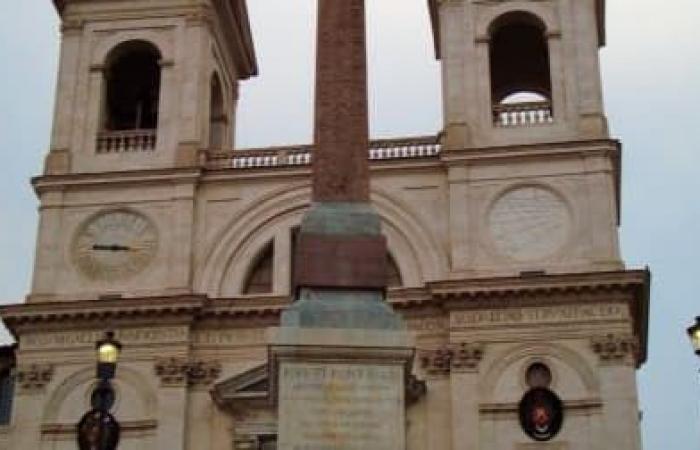“There are numerous and obvious shortcomings” in the management of this heritage “of considerable value”, deplores the report which covers the period 2015-2022.
“Approximate” management, “opaque” decisions and even “excesses”… in a severe report, the Court of Auditors on Monday castigated the administration of the “Pious Establishments”, which manage an exceptional French real estate and spiritual heritage in Rome.
Placed under the authority of the French Embassy, the “Pious Establishments of France in Rome and Loreto”, often called “the Pious”, manage in particular thirteen rental buildings located in the historic center of Rome as well as five churches, including the famous Trinità-des-Monts and Saint-Louis des Français which houses three world-famous paintings by Caravaggio.
However, “there are numerous and obvious shortcomings” in the management of this heritage “of considerable value”, deplores the report which covers the period 2015-2022.
Firstly because this heritage “is not known precisely”: neither the churches nor even the collections are included in the accounting balance sheet and “no estimate of the value of these works has been made”.
These shortcomings lead to “risks of dispossession which have, for some, already materialised”, the report states.
“Extra-accounting” management
On the property market, the Court highlights an “opaque policy of allocating and setting rents” for the 148 apartments and 31 stores, on average “below the low range” in these sought-after neighborhoods, and with “poorly justified advantages granted to many tenants.”
The Court also deplores the “extra-accounting” management of certain bank accounts with “numerous cash payments”, sometimes for salaries, rents, reimbursement of expenses, etc.
Added to this is “a failing cooperation with the Ministry of Culture”. Since its fire prevention recommendations were not followed, there is in the churches “a proven risk to the safety of property and people”, according to the Court.
Another problem: “significant deviations” in the work, carried out without publicizing the calls for tender, entrusted to a small number of companies, “with the risk of significant overcharging”.
How can this situation be explained? The Court highlights a “long-standing ambiguity” regarding the status of the Pieux which “has fuelled the abuses”, even if in its eyes the French ownership of the heritage “has recently been confirmed” by several Italian judgments.
Considering that “the responsibility of the ambassadors and the State is engaged” and that the latter “must put an end without delay to the errors observed”, the Court affirms that the legal framework “must imperatively evolve” and evokes the creation of an establishment with financial autonomy or a public establishment.






